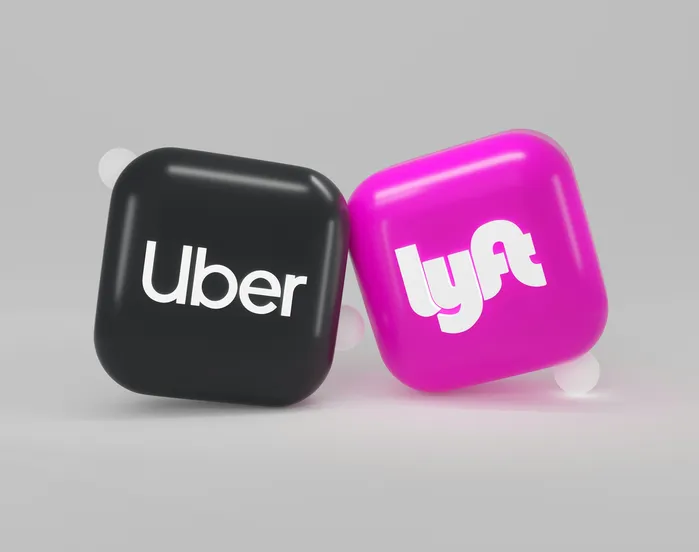9 min read time
Table of Contents

Immediate Consequences of Rejecting a Settlement Offer
Rejecting a settlement offer can show the insurance company that you are serious about pursuing fair compensation, especially if the initial settlement offers lowballed your case's true value.
However, rejecting a settlement offer from an insurance adjuster will cause new phases of negotiation where the insurer may respond with a revised offer or request additional evidence.
This additional negotiation phase can extend your personal injury claim's timeline, but it often leads to a larger settlement that covers your injuries and damages, especially if you have legal guidance from an experienced personal injury attorney from the Rodney Okano Car Accident Lawyer Law Firm.
Short-Term Impact on Your Personal Finances
Rejecting a low initial settlement will delay the payment that would normally cover immediate expenses caused by the accident, forcing you to use savings or credit to cover ongoing medical expenses, repair costs, and other daily expenses.
By not accepting the initial insurance offer, you may face higher debt levels and a gap in income that can strain your budget.
Typical short-term financial burdens can often arise from:
- Medical invoices
- Lost wages
- Rising insurance premiums
- Repair bills
- Out-of-pocket expenses
While you may feel the hit in your personal finances, these are only short-term implications that can be fixed by obtaining a fair settlement through your available legal options.
Potential Delays in Compensation
When you reject an offer, insurance adjusters may take longer to reassess your claim, causing delays in obtaining your final settlement, and they may even employ pressure tactics, hoping you accept a lower settlement.
Your claim's timeline can be extended by weeks or months, especially if more evidence is needed.
During this time, medical bills can continue to accrue, future medical treatments can become more expensive, and lost wages can accumulate, adding financial strain and potentially requiring legal representation.
How Rejecting a Settlement Offer Impacts Your Claim

Rejecting a low initial settlement offer keeps your personal injury claim going, allowing you to pursue a higher settlement that accurately reflects all future medical expenses, lost wages, financial losses, rehabilitation costs, and pain and suffering, adequately covering the injuries sustained.
It also signals to the insurance company that you are serious about your claim and know what you're doing, which can prompt a more generous counteroffer or a willingness to settle before trial during settlement negotiations, increasing your chances of a fair settlement, without pursuing litigation.
However, the decision to reject a settlement can extend the insurance dispute, potentially delaying access to funds you need for ongoing care and costs.
In the long run, a rejected offer may lead to litigation, which can uncover additional damages but also introduce uncertainty and extra costs. If the case goes to court, the final judgment may be higher or lower than the insurer's original settlement offer, depending on the evidence presented.
Finally, the statute of limitations remains in play while negotiations continue. Failing to act within the statutory period can permanently bar you from recovering any compensation, so timely filing of all required documents is essential.
So, in short, if you plan on rejecting an initial settlement offer from the insurance company, act fast and obtain legal advice from an attorney.
How to Negotiate a Settlement After Rejecting the First Offer
Rejecting an initial settlement offer initiates a new phase of communications, allowing both parties to refine the terms.
At this stage, claimants can present additional evidence and negotiate settlements that more adequately cover their losses. The process requires patience and a clear strategy to secure a fair settlement.
How to Present a Strong Counteroffer
When you reject compensation offered by the insurance company, draft a detailed counteroffer that explains why the first offer's amount was insufficient. Attach supporting documents and break down each damage category (economic and non-economic).
A quick reference list that can help the insurance adjuster understand your damages is:
- Past Medical Expenses: Invoices and receipts
- Future Medical Costs: Treatment plan and estimates
- Lost Wages and Financial Losses: Pay stubs and employer lost income letters
- Pain and Suffering: Journal entries or expert opinions
What to Expect from an Insurance Company Counteroffer
When claimants in personal injury claims reject an initial settlement offer or initial proposal, insurers will often respond with a revised offer that may include a higher settlement amount, additional coverage for previously excluded damages, a structured payment plan, or multiple offers.
They might also add a contingency clause that ties future compensation to medical updates or introduce a higher deductible to reduce the insurance company's risk.
If the insurer still feels your asking amount is too large, they may propose a low settlement offer that includes a payment schedule, a reduced lump sum, or a partial release of liability, all to avoid a potential trial.
Legal Implications of Rejecting an Insurance Settlement Offer
Rejecting an insurance settlement offer can lead to a range of legal responses, from renegotiation to potential litigation, which may require the assistance of an experienced personal injury lawyer.
Understanding the legal landscape can follow after rejecting an initial settlement proposal, which can help accident victims better prepare for the next steps.
Statutory Rights and Limitations
When you reject an initial offer, statutory rules may still bind the insurance company. Jurisdictions often require a written counteroffer within a set period; failure to comply can trigger automatic acceptance and effectively end the negotiation process.
Statutes of limitation also set filing deadlines for claimants after rejecting an initial offer.
Key statutory limits to understand are:
- The insurer may withdraw an offer before acceptance
- Claimant must file within the statutory period or risk losing their right to compensation
Rejecting a Settlement and the Statute of Limitations
The clock starts ticking the moment an injury or accident occurs. Prompt action in your case allows you to gather evidence, secure medical records, and keep witnesses' statements fresh, letting you build more detailed documentation. Delays can weaken your case and give insurance companies more leverage to justify a low offer.
The statute of limitations imposes a firm deadline for filing a lawsuit. Once that period ends, the court bars the claim, no matter its merits. Most personal injury claims must be filed within a few years after the incident, a period that a personal injury lawyer or legal representative can help you navigate.
Missing the deadline can permanently remove your right to recover damages for that accident. Even if new evidence appears later, the courts will not reopen your case.
Acting early preserves your legal rights and the chance for full compensation; act today by talking with an attorney by calling (702) 566-3600.
Insurance Company's Right to Take Back a Settlement Offer
An insurer has the right to withdraw a settlement offer at any point before it is signed.
The offer usually specifies a deadline; however, the insurance company can still retract it if new evidence emerges or if the policy limits change. Rescission is more common after the first offer is rejected; however, it can occur at any stage of settlement negotiations.
A rescinded offer does not erase the underlying claim or the policyholder's right to pursue legal action. The claimant can still file a lawsuit and seek damages that were previously covered.
Additionally, if the insurance company's rescission violates the policy's terms or is in bad faith, it can be challenged in court, potentially through a formal complaint.
Preparing for Litigation After Rejecting a Settlement Offer
After you turn down an initial settlement offer, your personal injury attorney can file a formal complaint that details the injury, the defendant's liability, and the damages requested, including lost income, property damages, out-of-pocket expenses, and financial compensation.
After filing a formal complaint, your state's court will schedule a discovery period, where both parties exchange medical records, accident reports, and depositions, often revealing new facts that can support your claim.
During the discovery period, an experienced personal injury lawyer will often secure expert witnesses, file pre-trial motions, and keep settlement talks alive, often through mediation.
Additionally, a clear trial strategy should be built around liability, compensatory damages, and any punitive damages, and the client should be informed of timelines, risks, and realistic outcomes before the case goes to court.
Tips on Gathering Evidence After Rejecting a Settlement
After a claim is rejected, insurers will often request additional evidence to justify your counteroffer and rejection of initial settlement offers.
You should promptly gather all relevant medical records, bills, and treatment plans that accurately document the damages you incurred because of the accident.
Expert opinions on future medical needs can also strengthen your negotiating position, while loss-of-income statements can help demonstrate the economic impact caused by the accident.
Organizing these documents in a clear, chronological format helps the adjuster assess the claim quickly and reduces the risk of further delays in the claims process.
Insurers may request new evidence within weeks of you rejecting the first offer, so preserving original documents is essential. Keep digital backups in a secure cloud storage and maintain a dedicated folder for physical copies.
How Rejecting an Insurance Settlement Offer Impacts the Value of Your Claim
Rejecting an initial low settlement offer sends a message to the insurance companies that you are not willing to settle for any amount that falls short of the true value of your claim, prompting insurance companies to aim for a mutually acceptable agreement, without litigation.
Rejecting an offer will often prompt a reassessment of your case, in which the adjuster will review the evidence again and consider a higher payout that adequately covers your damages.
After rejecting an offer, a well-prepared counteroffer, backed by detailed medical records, expert testimony, and a thorough economic analysis, can lead to a substantial increase in your final settlement figure.
On the flip side, accepting a settlement too early can lock you into a settlement that may not cover future medical bills, ongoing therapy, or the long-term impact on your earning capacity, especially when the accident involved serious injuries.
Also, initial settlement offers often tend to downplay non-economic damages such as pain and suffering and emotional distress, which are crucial components of a fair settlement that must be addressed for a fair resolution process.
By holding out for a higher offer, you give the insurer a stronger incentive to compensate you fully, reducing the risk of a payout that falls short of the actual costs you will incur.
Methods for Reaching a Fair Settlement Without Litigation
Going to trial after rejecting the insurance company's initial proposals can result in additional expenses piling on with the already expensive losses caused by the accident. Luckily, there are alternative dispute resolution methods, other than trial, which are explored below.
Mediation and Arbitration
Mediation and arbitration offer a middle ground between seeking a fair settlement and pursuing a full trial.
In mediation, a neutral person helps both parties negotiate a mutually acceptable agreement, whereas in arbitration, a neutral decision-maker determines the final outcome.
Both processes are typically faster and less costly than litigation, and they allow for a more flexible solution tailored to each side's needs and financial interests.
However, these methods also limit discovery and reduce the claimant's control over the final decision, especially in arbitration, where the ruling is final and an appeal is rare.
Choosing the right path, mediation, arbitration, or litigation, depends on the complexity of the insurance claim, the parties' willingness to negotiate, and the importance of comparable cases and future-needs coverage.
Role of Your Attorney After Rejecting the Initial Settlement

When you reject an initial offer, an experienced attorney can draft a formal written denial that cites the specific faults with the offer, such as insufficient coverage for future medical care, pain and suffering, or income loss. This increases the chances of increasing your potential insurance settlement.
Your lawyer will then compile updated medical records, cost estimates, and comparable case data to craft a counteroffer that reflects the true value of your damages.
If the insurance company refuses the counteroffer, your attorney can file a lawsuit, which often results in larger settlement offers from insurance companies, as most insurance companies aim to reach an agreeable resolution without going to court, as a jury settlement order can result in long-term consequences for the insurance company.
By handling all the legal steps, your lawyer can protect your rights, allow you to focus on recovery, remain calm during the negotiation process, and guide you toward the best possible outcome.
Common Misconceptions Around Rejecting an Insurance Settlement
One of the most common misconceptions people have is that rejecting an insurance settlement offer automatically guarantees a higher payout, but the reality is that the insurance company can counter with a lower figure or even deny coverage entirely.
The court may view the refusal as a sign of unreasonable expectations, which can harm the case and even lead to a loss.
Another misconception is that a lawyer will negotiate a better settlement amount or take the case all the way to trial. However, in reality, attorneys often advise clients to remain calm and accept a reasonable offer early to avoid lengthy litigation and potential losses in court, especially when both sides' evidence is strong and fault is not completely clear.
Rejecting a fair insurance settlement offer can backfire if the insurance company later proves the claim is less severe than initially assessed.
Obtain the Compensation You're Entitled To
Contact Us Today
Rodney Okano Car Accident Lawyer is a Las Vegas personal injury law firm with over 20 years of experience helping clients obtain maximum compensation following injuries from accidents such as car crashes, worksite injuries, and slips and falls. Over those years, The Rodney Okano Car Accident Lawyer Law Firm has become an experienced law firm that can ensure exceptional results for any of its clients.






